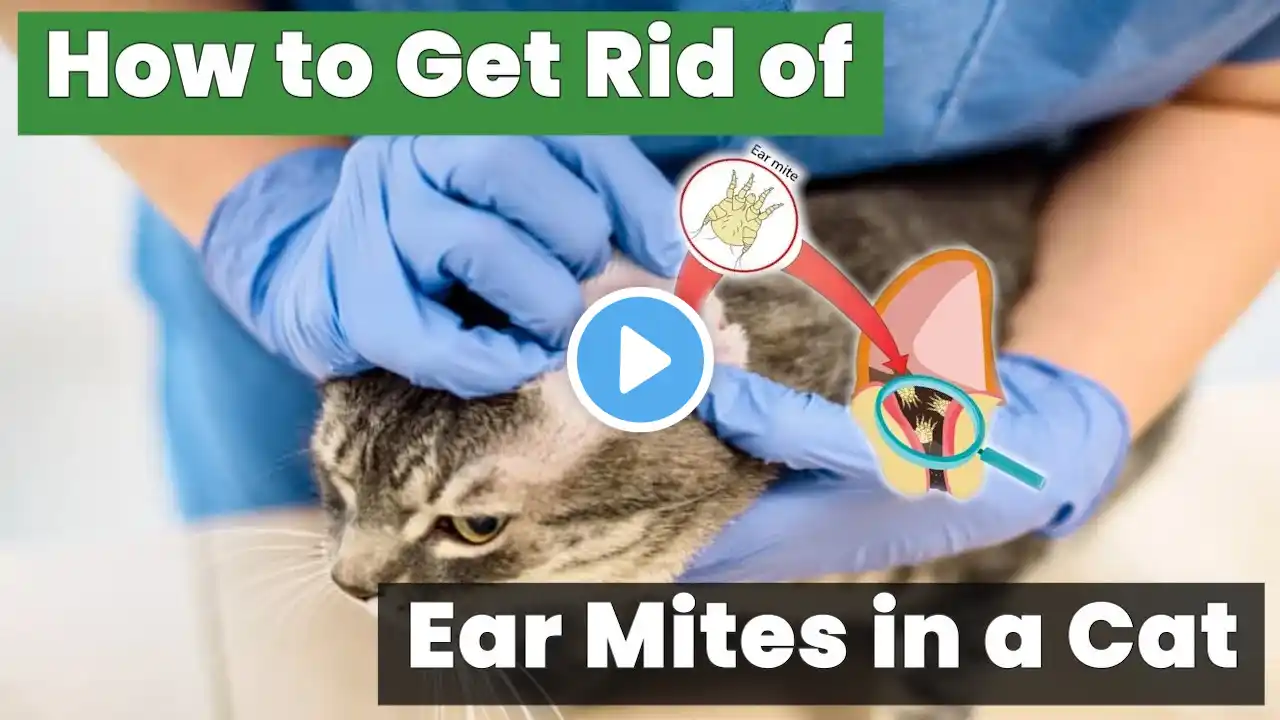
How To Get Rid of Ear Mites on Your Cat
Ear mites—itchy parasites that can infest your kitty’s ear canals—can be miserable for your cat. Learn the signs and symptoms, potential treatment steps your vet may recommend, and ways to prevent ear mites on your cat. What Are Ear Mites in Cats? Ear mites—also known as Otodectes cynotis—are external parasites that are typically found within an infected cat’s ear canal. As their name suggests, they most commonly infest the ears, but these tiny parasites can also appear in other spots on your cat. What Causes Ear Mites in Cats? Unfortunately, ear mites are highly contagious. But most healthy, indoor adult cats who don’t regularly come into contact with other pets outside the household are at low risk of contracting them. What cats are at the highest risk? Felines from multiple-animal situations, such as catteries, shelters, or living together outdoors in a feral colony. Ear mites are also more common in kittens and in older cats who have a compromised immune system. They’re also not exclusive to cats—dogs and other small animals like ferrets can get ear mites and pass them along to your cat. Signs and Symptoms of Ear Mites in Cats Here are some common signs and symptoms to look for if you suspect your pet is having an issue with ear mites: Dark ear discharge Itchiness Redness Headshaking How To Get Rid of Ear Mites on a Cat Worried about cat ear mites? Luckily, they’re easily treatable with the right interventions. Here are the steps you should take to be sure your cat is mite-free and feeling better soon: 1. Visit Your Veterinarian Your veterinarian can best determine whether or not your cat has ear mites. During your office visit, they typically first examine your cat’s ears to see if they have that telltale buildup of dark, waxy “coffee grounds.” They then collect a sample for testing, and use an ear examination tool called an otoscope to look for the mites themselves. Your vet will also check for secondary ear infections in your cat. With an inflamed ear, other bacterial or yeast infections can easily develop. 2. Give Anti-Parasitic Medication If your veterinarian diagnoses your cat with ear mites, they may prescribe medication designed to kill the pesky parasites. There are two different types of medication for getting rid of mites: oral medicine and a topical solution. The topical treatment can be applied to the skin monthly to help kill mites. If there are any secondary infections, your vet may prescribe a course of ear drops containing antibiotics or antifungal medication to help treat those too. 3. Treat Your Other Pets Even if your other pets aren’t showing any signs of ear mites, once you confirm your cat has them, you should treat all other animals in the household. That’s because ear mites are highly contagious and easily passed between cats, dogs and other pets. 4. Return to Your Vet for a Checkup It’s also a good idea to follow up with your vet to ensure the cat’s ear mites are gone and that any secondary infections have cleared the ear canal. You may need to follow up in six to eight weeks after ear mite treatment is complete, or sooner if your cat has a secondary infection. Ask your vet about the timeline for your cat’s next checkup. Can I Use Home Remedies for Ear Mites in Cats? Sorry—there aren’t any safe, effective home remedies to treat ear mites. Cat parents should talk to their veterinarian if they suspect their cat has ear mites. Left untreated, cats with ear mites will suffer from itchy, irritated skin. They’re at risk for developing ear problems, such as infections, aural hematomas or changes to their ear canal. Plus, ignoring an ear mite issue can leave your cat feeling miserable. How To Prevent Ear Mites in Cats While most healthy, adult, indoor cats are at low risk for contracting ear mites, there are situations where you may want to protect your pet. If you plan to foster kittens routinely or bring new cats into your household, it’s a good idea to protect your cat against fleas and ear mites. Some parasite-prevention medicines help protect your cat against fleas and heartworms in addition to effectively preventing ear mites. Many of those medications are labeled for ear mite prevention on the packaging. If you are looking for a particular product, ask your veterinarian for a recommendation. Shop parasite prevention for cats: https://www.chewy.com/f/parasiticides... With the right interventions, your cat’s ears will be healthy and parasite-free. If your cat is at risk for contracting ear mites, it’s important to stay proactive in protecting your feline friend’s health with preventive medications. As always, reach out to your vet with any questions or concerns. #chewy #chewtorials #earmites #earmitesincats #catearmites



















